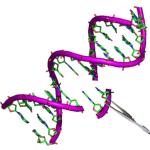Fourteen years ago last month, I was privileged to join a small group of scholars and clergy convened from around the world by the Pontifical Academy of Sciences for a “study week,” the subject of which was “Transgenic Plants for Food Securit
genetic modification
Anyone active on social media is aware that there is a great deal of passionate but ill-founded opposition to vaccination, including the new COVID-19 vaccines. How could that be?
While he was the Prince of Wales, King Charles repeatedly demonstrated a pitfall of the sort of inbreeding that has plagued the royal families of Europe for centuries: feeblemindedness.
Molecular genetic engineering has spawned a strange new allergy. No, not the kind of allergy that causes hives or wheezing; rather, an aversion to mentioning the role of genetic engineering in agriculture.
Agronomist and plant breeder extraordinaire Norman Borlaug, often described as “The Father of the Green Revolution,” was an inspiration to many of us involved in ince
A good example of Stanford's embrace of radical, anti-scientific views was the university’s invitation in 2020 to notorious charlatan Vandana Shiva to present the prestigious
“Florigen-regulating genes have been repeatedly modified by breeders in crops as diverse as tomatoes, soybeans, potatoes, beans, strawberries, barley, sugar beet, rice, and wheat.
GWAS and Polygenic Risk Scores (PGS)
A serious infectious disease nearly wiped out a beloved species in the United States. Scientists have now discovered how to bring it back. Should they restore this once prevalent species to its former glory?
The British Parliament is something to behold. And it's not just because of its storied history or the breathtaking neo-Gothic architecture of the Palace of Westminster.












